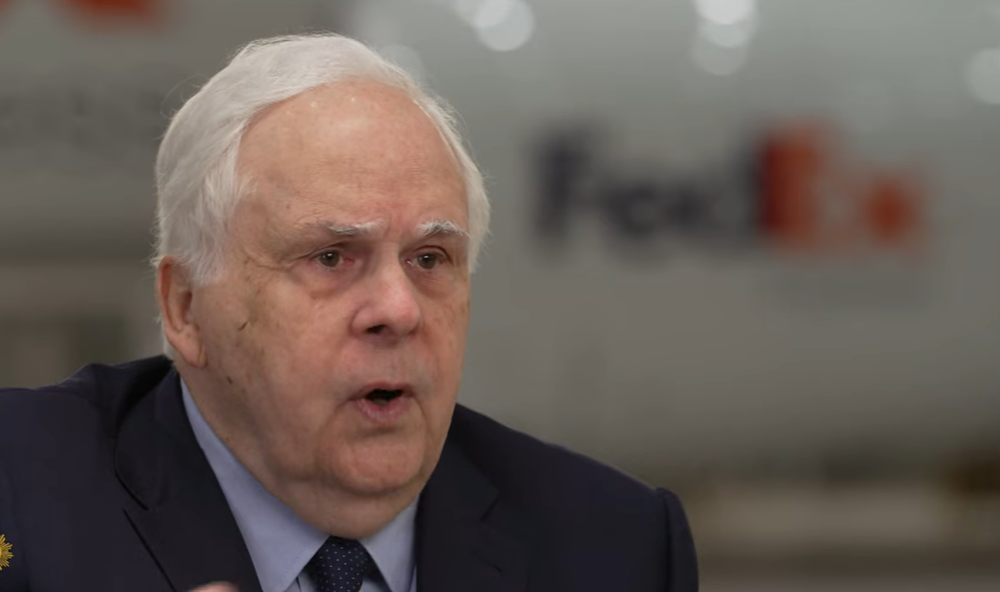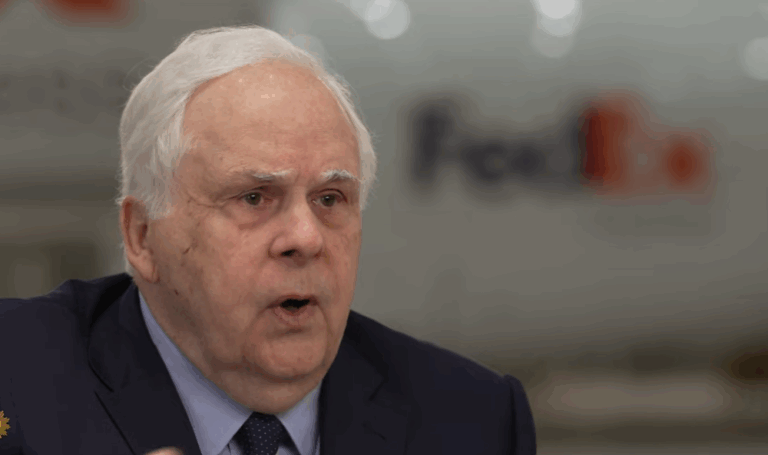Fred Smith – Personal and Professional Overview
| Full Name | Frederick Wallace Smith |
|---|---|
| Date of Birth | August 11, 1944 |
| Date of Death | June 21, 2025 |
| Age at Death | 80 |
| Birthplace | Marks, Mississippi, USA |
| Education | Yale University (BA in Economics) |
| Occupation | Business Magnate, Investor, Philanthropist |
| Known For | Founder of FedEx Corporation |
| Military Service | U.S. Marine Corps, Captain, Vietnam Veteran |
| Spouses | Linda Black Grisham (div.), Diane Smith |
| Children | 10, including Windland, Arthur, Molly |
| Net Worth | Estimated $5.3 Billion at Time of Death |
| Source | www.wikipedia.org/wiki/Frederick_W._Smith |
Fred Smith’s visionary leadership turned FedEx from a term paper sketch into a $87 billion shipping conglomerate, but beneath the shrewd business acumen and ostentatious resume, he battled a number of serious health problems in private. The answer to the question of whether Fred Smith was ill is incredibly complex, with roots in childhood, war-shaped characteristics, and a legacy that, in spite of its enormity, is remarkably human.
Smith, who was diagnosed with Legg-Calvé-Perthes syndrome early in life, used leg braces and crutches for the majority of his childhood before gradually regaining his mobility by the time he was ten. Instead of weakening him, that early experience with physical limitations strengthened his resolve. When FedEx survived its early days on one last-ditch blackjack win, it seemed as though the tenacity FedEx required of him would eventually blossom from the resilience ingrained in his bones.
There has been more conjecture regarding Smith’s health in recent decades. By leaving his position as CEO in 2022 and allegedly turning down two high-level government positions, Fred quietly hinted that not everything that went on behind the scenes was as unstoppable as the business he founded. He had been dealing with personal medical issues, such as a potential cancer diagnosis, according to Hindustan Times. Even though they were never officially verified, rumors of frequent trips to the Mayo Clinic only served to heighten suspicions. However, Smith stayed remarkably silent instead of making statements or expressing sympathy, possibly preferring to communicate through decisions rather than press releases.
Smith’s death from a heart attack at the age of 80 in June 2025 was the most notable health event. The announcement chilled corporate circles even though it was anticipated by those close to him. Because of the weight of his absence, not because of the nature of the death. His successor, Raj Subramaniam, described Smith as “the heart and soul of FedEx”—a term that, in retrospect, seemed painfully literal.
There was more. Smith was diagnosed with Chronic Traumatic Encephalopathy (CTE), a degenerative brain disorder commonly seen in athletes and military personnel, by the UNITE Brain Bank after his death. The condition was probably exacerbated by his time serving in Vietnam as a U.S. Marine, where he received two Purple Hearts and a Silver Star. Both war veterans and deceased NFL greats have the same illness. Smith’s diagnosis becomes especially illuminating in this light, both medically and symbolically. It connects his story to a larger social trend: people who leave behind legacies frequently incur unnoticed costs.

Through that lens, his rejection of George W. Bush’s offer of the Secretary of Defense takes on new significance. Smith put family and health before ambition, declining once for medical reasons and again to care for a daughter who was near death. His choice served as a model for moral leadership in many respects, which is particularly relevant now that business giants are coming under increased scrutiny for work-life balance, burnout, and human costs.
Smith’s legacy is still enormous and intensely personal in spite of these health issues. His kids went on to influence different industries—Windland in photography before her tragic death, Molly in film, and Arthur Smith in the NFL. With a name that still has a lot of weight, his son Richard is a senior executive at FedEx, bridging the past and the future.
Corporate culture has been steadily changing over the last 20 years, moving from exalted overwork to measured sustainability. Fred Smith experienced that change without labeling it that way. His exit from executive responsibilities was presented as a sign of renewal rather than failure. In hindsight, that backtracking turned out to be a remarkably obvious indication of a man who understood when to change course for his own health, a trait that is still uncommon among leaders of his generation.
Personal struggles were never sensationalized by Fred Smith. Smith viewed health as a personal matter, in contrast to public figures who broadcast every doctor’s note or record every surgery. In the media-driven world of today, that restraint is especially commendable. It serves as a reminder that oftentimes, dignity is found in silence.
Even though his passing was noteworthy, it should be seen as a continuation rather than a conclusion. Under its new management, FedEx is still incredibly effective, and Smith’s structure and culture are still in place. His creations endure because they were not merely ideas; they were molded by resiliency developed through illness and war, honed through decades of leadership, and finally put to the test by a human body that was unable to match the size of the empire it helped establish.


